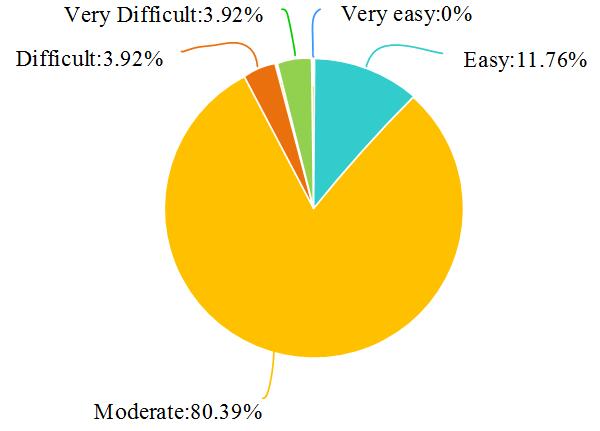Evaluation of Business English Writing Course-book Based on the Needs Analysis Model
Taking A Basic Course for Business English Writing as An Example
Abstract
Since business English (BE) was ratified as an undergraduate major in China by the Ministry of Education in 2007, domestic research on it has been mushrooming. BE writing course is one of the core courses in the module of English knowledge and skills for BE undergraduate program. Although there are more than 354 BE writing course-books have been published, few researches have been done to evaluate these textbooks. This paper aims to evaluate one of the BE writing course-books used by Guizhou University, namely, A Basic Course for Business English Writing. Targeting on the students majoring in Business English, the paper adopted the needs analysis model proposed by Hutchinson and Waters as well as the present situation analysis model raised by Richterich and Chancerel to design the questionnaire, which was used to identify students’ needs for business English writing. Based on the results of the questionnaire survey and the course-book evaluation criteria created by McDonough and Shaw, we identified the problems with the course-book and proposed some suggestions for modifications and further improvement.
Downloads
References
Chen Zhunmin & Wang Lifei (2009). Developing national curriculum for BA program in business English of China. Foreign Languages in China, 4, 4-11. https://doi.org/10.3969/j.issn.1672-9382.2009.04.002
Cohen, L., Manion, L., & Morrison, K. (2000). Research methods in education. London: Routledge. https://doi.org/10.4324/9780203224342_chapter_1
Hao Lining & Ma Jing (2007). Basic principles and skills of business correspondence writing. Market Modernization, 19, 21-22. https://doi.org/10.3969/j.issn.1006-3102.2007.19.013
Hutchinson, T., & Waters, A. (1987). English for specific purposes: A learning-centered approach. Cambridge: Cambridge University Press. https://doi.org/10.1017/CBO9780511733031
Hutchinson, T., & Waters, A. (2002). English for specific purposes. Shanghai: Shanghai Foreign Language Education Press.
McDonough, J., & Shaw, C. (1993). Materials and methods in ELT. Cambridge, Mass: Blackwell.
Mo Zaishu & Sun Wenjuan (2010). An analysis of status quo of business English writing course-book development in China. Foreign Language Education, 5, 81-85. https://doi.org/10.16362/j.cnki.cn61-1023/h.2010.05.020
Nelson, M. (2000). A Corpus-based study of the lexis of business English and business English teaching materials. Ph. D. dissertation, University of Manchester.
Richterich, R. (1972). A model for the definition of language needs of adults learning: A modern language. Strasbourg: Council of Europe.
Richterich, R., & Chancerel, J. (1977). Identifying the needs of adults learning: A foreign language. Strasbourg: Council of Europe.
Shi Xingsong & Cheng Xia (2019). A social needs analysis of business English talents. Foreign Language World, 2, 65-72.
Shi Xingsong & Xu Jun (2012). The implications of intercultural business communication studies on the teaching and research of business English. Foreign Languages in China, 4, 65-70. https://doi.org/10.13564/j.cnki.issn.1672-9382.2012.04.014
Tao Yu (2017). An analysis of status quo and problems of business English writing course-books. Anhui Literature, 12, 136-137.
Wang Lifei (2012). Repositioning the discipline and academic research of business foreign languages. Foreign Languages in China, 3, 4-9+23. https://doi.org/10.13564/j.cnki.issn.1672-9382.2012.03.008
Wang Weiqiang (2010). Genre pedagogy and the teaching of business English writing. Journal of Changchun Normal University (Humanities and Social Sciences), 5, 128-132. https://doi.org/10.3969/j.issn.1008-178X.2010.05.033
Wang Yanyan, Wang Guanglin & Zheng Lina (2014). The needs and cultivation pattern of business English majors. Foreign Language World, 2, 34-41.
Xu Jun & Xia Rong (2013). An empirical study on the multimodal course design of business English writing. Foreign Language World, 4, 32-39.
Zhang Fenghua (2015). A study on the development and researches of domestic business English writing course-books from 2000 to 2013. Journal of Yunnan Agricultural University (Social Science), 1, 87-93.
Zhou Wenxuan, Wang Rui & Shi Liang (2014). The review of business English writing textbook and problems analysis in China. Journal of Qiqihar University(Philosophy and Social Science Edition), 2, 172-175. https://doi.org/10.13971/j.cnki.cn23-1435/c.2014.02.021
Zhu Wenzhong (2010). Business English teaching mode: Its theoretical evolution, features and performance. Journal of Guangdong University of Foreign Studies, 4, 22-27. https://doi.org/10.3969/j.issn.1672-0962.2010.04.004
Zhu Xi (2007). Theory and practice on project-based teaching of business English. Journal of Chongqing Vocational & Technical Institute, 5, 47-50. https://doi.org/10.3969/j.issn.1674-5787.2007.05.017


This work is licensed under a Creative Commons Attribution 4.0 International License.
Copyright for this article is retained by the author(s), with first publication rights granted to the journal.
This is an open-access article distributed under the terms and conditions of the Creative Commons Attribution license (http://creativecommons.org/licenses/by/4.0/).









1.png)









1.png)











